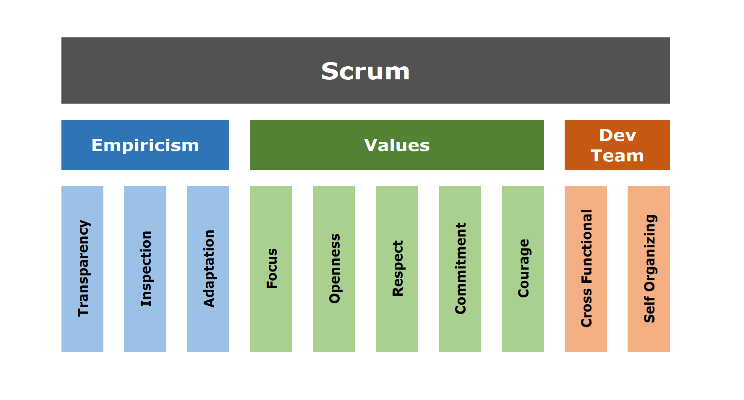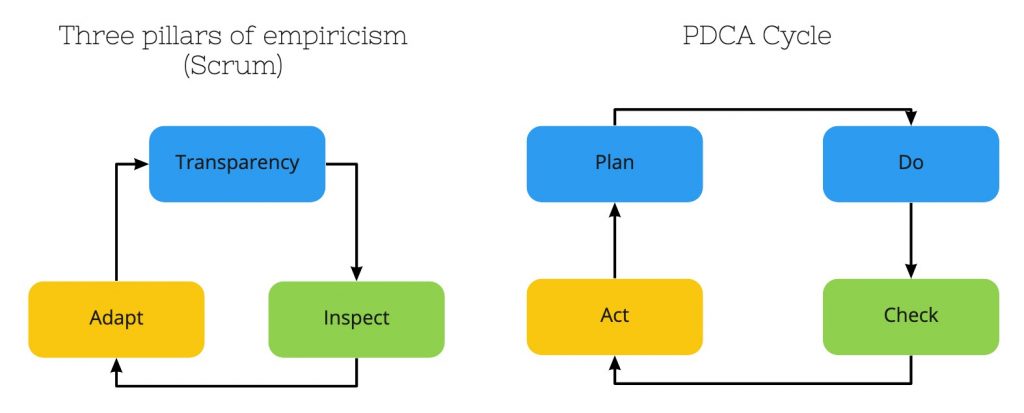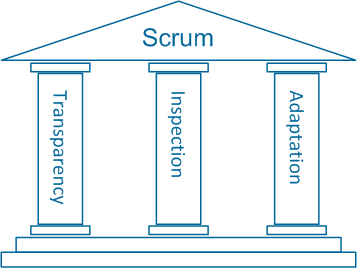The Three Pillars of Empiricism (Scrum)
Por um escritor misterioso
Last updated 23 abril 2025

Empiricism means working in a fact-based, experience-based, and evidence-based manner. Scrum implements an empirical process where progress is based on observations of reality, not fictitious plans. Scrum also places great emphasis on mind-set and cultural shift to achieve business and organizational Agility. The three pillars of empiricism are as follows:

The Empiricisms' Three Pillars: Agile Scrum Methodology

The Three Pillars of Empiricism (Scrum), PDF, Agile Software Development

Scrum 3-5-2 Deep Dive

The Three Pillars of Scrum. Understanding Empiricism in Agile…, by Ujala siddique

Practical guide for improving software delivery in DevOps – part 1 – Niels Talens

Whizible - “Empiricism asserts that knowledge comes from experience and making decisions based on what is known. Scrum employs an iterative, incremental approach to optimize predictability and control risk” Quoting the Scrum

What is SCRUM? — CODING ALI

The Three Pillars of Empiricism (Scrum)

What are the 3 Pillars of Scrum (Empiricism) - StarAgile

The Three Pillars of Empiricism (Scrum)

🎶“Let's Get Empirical”🎶. “Empirical, I wanna get Empirical…, by John Albrecht, Serious Scrum
Recomendado para você
-
 Press F to pay respects - Wikipedia23 abril 2025
Press F to pay respects - Wikipedia23 abril 2025 -
 Apertar F para prestar homenagens não significa nada - Salvando Nerd23 abril 2025
Apertar F para prestar homenagens não significa nada - Salvando Nerd23 abril 2025 -
Comunidade Steam :: Captura de Ecrã :: Press F to Pay Respects23 abril 2025
-
 Cuernavaca - Wikipedia23 abril 2025
Cuernavaca - Wikipedia23 abril 2025 -
 Press F To Pay Respects Sticker for Sale by monguss23 abril 2025
Press F To Pay Respects Sticker for Sale by monguss23 abril 2025 -
 Respect, Saints Row Wiki23 abril 2025
Respect, Saints Row Wiki23 abril 2025 -
Methodology for assessing hydrological characteristics in data scarce areas; general report23 abril 2025
-
 Call of Duty Press F Logo Decal - Call of Duty Store23 abril 2025
Call of Duty Press F Logo Decal - Call of Duty Store23 abril 2025 -
 Kingston 480GB A400 SATA 3 2.5 Internal SSD SA400S37/480G - HDD Replacement for Increase Performance : Electronics23 abril 2025
Kingston 480GB A400 SATA 3 2.5 Internal SSD SA400S37/480G - HDD Replacement for Increase Performance : Electronics23 abril 2025 -
 21st ISoP Annual Meeting “A New Era of Pharmacovigilance: Challenges and Opportunities” 20–23 September 2022 Verona, Italy23 abril 2025
21st ISoP Annual Meeting “A New Era of Pharmacovigilance: Challenges and Opportunities” 20–23 September 2022 Verona, Italy23 abril 2025
você pode gostar
-
 Classic Sonic Simulator Boiling Barrage Zone Act 2 (by tommyay6623 abril 2025
Classic Sonic Simulator Boiling Barrage Zone Act 2 (by tommyay6623 abril 2025 -
 State of Decay 2 Co-Op: Cross-Platform Multiplayer with Voice Chat — Eightify23 abril 2025
State of Decay 2 Co-Op: Cross-Platform Multiplayer with Voice Chat — Eightify23 abril 2025 -
ᐉ HOSTAL CASA ARAUCARIA ( PUERTO VARAS, CHILE ) REAL PHOTOS23 abril 2025
-
Bloodborne Fanfiction23 abril 2025
-
 Cool wallpaper hd Landscape wallpaper, Scenery wallpaper, Anime scenery wallpaper23 abril 2025
Cool wallpaper hd Landscape wallpaper, Scenery wallpaper, Anime scenery wallpaper23 abril 2025 -
 Sonic 1 - Hyper X (Sega Genesis Hack) Gameplay Part 7 (Final Zone23 abril 2025
Sonic 1 - Hyper X (Sega Genesis Hack) Gameplay Part 7 (Final Zone23 abril 2025 -
 Fallout: New Vegas' City Would Shine in a Proper Remake23 abril 2025
Fallout: New Vegas' City Would Shine in a Proper Remake23 abril 2025 -
 JOGO DE PALAVRAS SIMPLES – Professora ArteCriativa23 abril 2025
JOGO DE PALAVRAS SIMPLES – Professora ArteCriativa23 abril 2025 -
 Pre- and Post-Natal - Diamond Athletic23 abril 2025
Pre- and Post-Natal - Diamond Athletic23 abril 2025 -
 Play Stick Battle: Endless War Online for Free on PC & Mobile23 abril 2025
Play Stick Battle: Endless War Online for Free on PC & Mobile23 abril 2025


